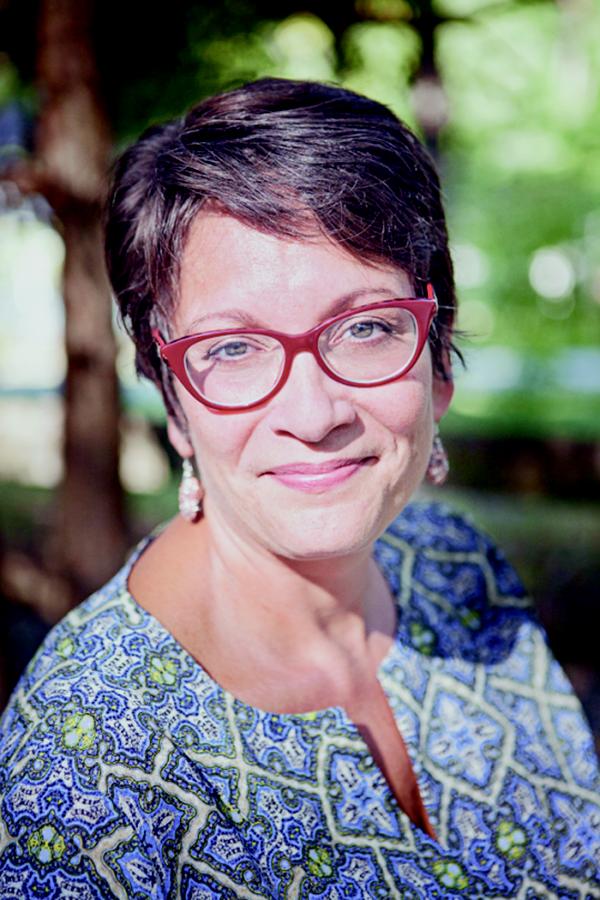What the Pura Belpré Award Means to Me
I was digging into a plate of masitas de puerco at a Cuban restaurant on 46th Street in Manhattan a couple of years ago when the doors opened and in walked Minnie and Mickey Mouse. Nothing is ever really surprising in New York, so I assumed they were on a break from taking photos with the thousands of tourists who swarm Times Square on any given day.
I was digging into a plate of masitas de puerco at a Cuban restaurant on 46th Street in Manhattan a couple of years ago when the doors opened and in walked Minnie and Mickey Mouse. Nothing is ever really surprising in New York, so I assumed they were on a break from taking photos with the thousands of tourists who swarm Times Square on any given day. I could see that it was a tight squeeze for them, though, wearing those heads that measured two feet across in an eatery as narrow as this one was. But when they leaned across the counter and took their heads off to order, I saw that inside the costumes were two Latinas, hot, sweaty, and probably hungry for the same tastes of home that had drawn me to the eatery, too. I couldn’t help smiling at them as I finished my meal. After all, they were inhabiting two of the most iconic symbols of U.S. American childhood, proof yet again that we Latinx folks are increasingly at the heart of things, including American childhood, even if at times we are frustratingly unseen or, worse, unwanted.
 There is a famous black-and-white picture of Pura Belpré (at right) that I especially love. It was taken at El Museo del Barrio in 1974 during what appears to have been a storytime. Schoolchildren — about the age that I would have been then — are sitting on the floor all around her, enjoying lollipops and transfixed by her outstretched hands and expressive face. Every time I come across that photo, I’m reminded of the women I knew in my childhood: my mother, abuela, and tías — all of whom took pains to share their own stories to connect me back to Cuba and everything that defined us. That photograph captures the essence of Pura Belpré’s legacy, and theirs: respect for oral traditions and imagination, the centering of children’s needs, and, above all, a deeply held pride in one’s culture against a backdrop reluctant to embrace it.
There is a famous black-and-white picture of Pura Belpré (at right) that I especially love. It was taken at El Museo del Barrio in 1974 during what appears to have been a storytime. Schoolchildren — about the age that I would have been then — are sitting on the floor all around her, enjoying lollipops and transfixed by her outstretched hands and expressive face. Every time I come across that photo, I’m reminded of the women I knew in my childhood: my mother, abuela, and tías — all of whom took pains to share their own stories to connect me back to Cuba and everything that defined us. That photograph captures the essence of Pura Belpré’s legacy, and theirs: respect for oral traditions and imagination, the centering of children’s needs, and, above all, a deeply held pride in one’s culture against a backdrop reluctant to embrace it.
The Pura Belpré Award, named in her honor, turns twenty-five this year. In so many ways, it’s an award that holds outstretched arms to authors, too. For Latinx children’s book creators, the work, by necessity, has always been about more than just finding a way to entertain children or illuminate the journey of childhood. To be a Latinx book creator comes with an implied mission to document the lives of Latinx people, with all the intersections of identity intact, and to keep those histories safe from erasure en el olvido.
I’ve been the lucky recipient of the Pura Belpré Award twice in my life: in 2014, for Yaqui Delgado Wants to Kick Your Ass; and in 2016, an honor award, for my picture book Mango, Abuela, and Me, illustrated by Angela Dominguez. Both times, I took the stage to accept the award with my heart racing and my eyes flooding. Looking out over the room, I felt an intimacy of experience that is difficult to convey. I saw the faces of the librarians who fought to establish this award and who have worked tirelessly since to further its reach and impact. I saw the librarians who run programs for the Spanish-speaking in this country, all trying to open doors of information and learning. Around me was a family of authors, some of us immigrants, some of us U.S.–born, but all of us writing stories rooted in the hopes that had brought our families here at some point.


These days, I believe that the Pura Belpré Award remains more essential to book creators and readers than ever. We are at a reckoning in our nation over our identity as a country, with heated debate about what it is to be “American,” and what it means to be patriotic. This is nowhere more fraught than for those of us who hyphenate our identities. I lean into this award because Pura Belpré understood that a sense of pride in being American wouldn’t be instilled in children by amputating their roots. And yet we see increasing pressure to do so, as if that will prove our patriotism. Just last year, for instance, congressional funding for a bill supporting the establishment of the National Museum of the American Latino as part of the Smithsonian was very nearly blocked on the argument that such a museum would further divide the people of this nation.
The bitter truth is that the welcome mat for a full narrative about Latinx people and our contributions to this country has not been rolled out everywhere, including in children’s publishing. We continue to see a dismally small number of works by or about Latinx people, as catalogued by the CCBC’s annual compilation of statistics. Sure, there have been improvements, but they have been glacially slow.
What this means is that the work begun by Pura Belpré and the fearless REFORMA librarians who created the award in her honor remains incomplete. It means that book creators and supporters in the Latinx space will have to continue their efforts to be seen and heard. And what will it take? Academics to study and elevate the literature we created. More robust attendance and support for the award and its festivities. More widespread inclusion of the winning titles in school and community library systems across the country — yes, even in places where “there aren’t many Latinos.” Keeping the winners and honor recipients in print so that readers and researchers alike in generations ahead can trace the development of the Latinx American experience and how it was expressed over time. What subjects did we explore and why? Which countries were represented, and which were not? How did gender and race, specifically anti-Black and anti-Indigenous practices in publishing, affect access to opportunity for Latinx book creators? What did the changes in the use of Spanish in our texts say about our sense of identity? The works themselves will tell the story and shape it, but most of all, they will carry the truth.
When I attend the twenty-fifth-anniversary awards ceremony next month — virtually, of course — I will help welcome new members to our Belpré family. Together we will honor the work of a visionary AfroLatinx librarian as much as we honor the new voices emerging. I expect to see in them the same emoción we often see at the ceremony: that poignant mix of joy, gratitude, and determination. We’ll join in Pura’s spirit that day and commit, once again, to the job of reshaping the canon of literature for American youth, to open it up to the lives of the children who have always been here all along, inside the fold, unseen.
From the May/June 2021 special issue of The Horn Book Magazine: The Pura Belpré Award at 25. Photo courtesy of the Pura Belpré Papers, 1897–1985 collection at the Center for Puerto Rican Studies Library & Archives. Hunter College, City University of New York.

RELATED
ALREADY A SUBSCRIBER? LOG IN
We are currently offering this content for free. Sign up now to activate your personal profile, where you can save articles for future viewing.







Add Comment :-
Be the first reader to comment.
Comment Policy:
Comment should not be empty !!!